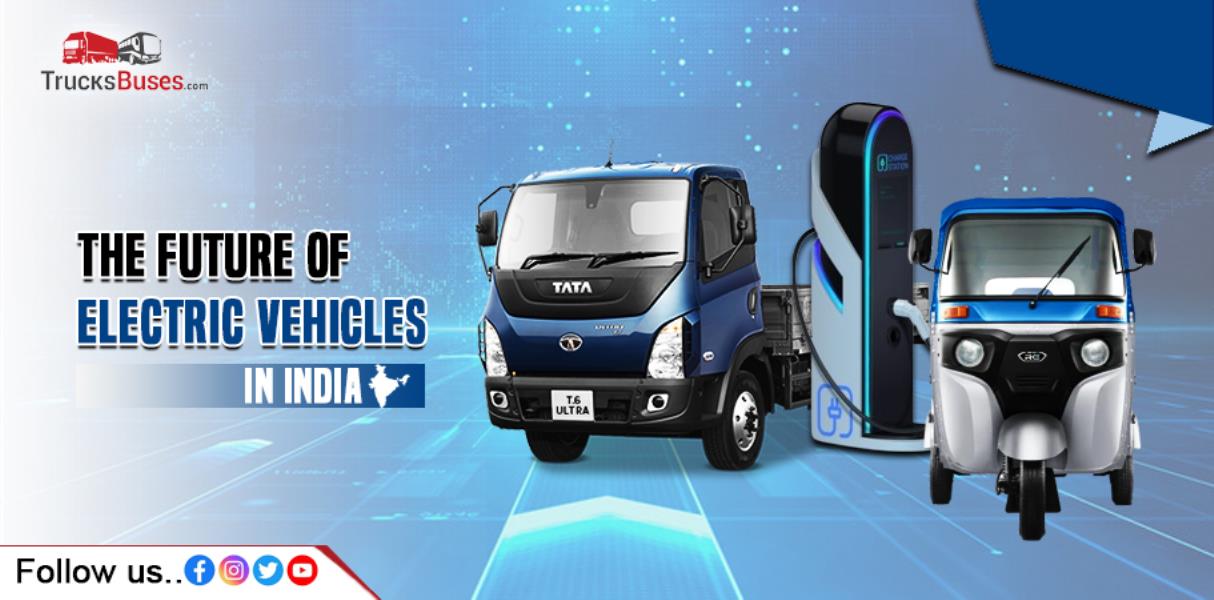The Future of Electric Vehicles in India
Electric vehicles (EVs) are transforming the automotive industry worldwide, and India is no exception. As the country grapples with air pollution and rising fuel costs, EVs offer a promising solution. With growing government support and increasing consumer interest, the future of electric vehicles in India looks bright. In this blog, we will explore what to expect from the electric vehicle revolution in India.

Government Support and Policies
The Indian government is committed to promoting electric vehicles as part of its strategy to combat pollution and reduce dependence on fossil fuels. Several policies and incentives have been introduced to encourage EV adoption
Growth in EV Infrastructure
A significant factor in the adoption of electric vehicles is the availability of charging infrastructure. The Indian government and private companies are investing heavily in expanding the EV charging network. This includes:
- Public Charging Stations: The number of public charging stations is steadily increasing, making it easier for EV owners to charge their vehicles on the go.
- Home Charging Solutions: Many EV manufacturers offer home charging solutions, allowing users to charge their vehicles overnight.
- Fast Charging Technology: Advances in fast charging technology are reducing charging times, making EVs more convenient for daily use. With these improvements, charging an electric vehicle is becoming more convenient and efficient.
Advancements in Battery Technology
Battery technology is a critical component of electric vehicles. Recent advancements are making EVs more practical and affordable. Key developments include:
- Improved Battery Life: Modern batteries offer longer life spans, reducing the need for frequent replacements.
- Faster Charging: New technologies are enabling faster charging times, which is crucial for everyday usability.
- Cost Reduction: As battery technology advances, the cost of batteries is decreasing, making electric vehicles more affordable for consumers.
These advancements are making electric vehicles a more viable option for a broader range of consumers.
Increased Availability of EV Models
As demand for electric vehicles grows, more manufacturers are entering the market with a wider variety of models. This includes:
- Affordable Options: New, budget-friendly electric vehicles are becoming available, making them accessible to more people.
- Luxury Models: High-end electric vehicles are also being introduced, offering advanced features and performance.
- Two-Wheelers and Commercial Vehicles: In addition to cars, electric two-wheelers and commercial vehicles are gaining popularity, catering to different segments of the market.
The increased availability of various EV models is expanding the choices for consumers and meeting diverse needs.
Consumer Awareness and Adoption
Consumer awareness and acceptance are critical for the growth of the electric vehicle market. Several factors are driving this trend:
- Environmental Concerns: Growing awareness about environmental issues and air pollution is leading more people to consider electric vehicles.
- Cost Savings: The lower running costs of electric vehicles, including reduced fuel and maintenance expenses, are attracting budget-conscious consumers.
- Government Incentives: Financial incentives and subsidies are making electric vehicles more attractive to buyers.
As awareness increases, more consumers are likely to choose electric vehicles, further driving the market’s growth.
Challenges and Solutions
Despite the positive outlook, there are challenges that need to be addressed for the widespread adoption of electric vehicles in India:
- Charging Infrastructure: While the network is expanding, there are still areas with limited charging options. Continued investment and development are needed.
- Battery Disposal: The disposal of used batteries poses environmental concerns. Developing recycling solutions and sustainable disposal methods is essential.
- Initial Cost: Although prices are falling, the initial cost of electric vehicles is still higher than traditional vehicles. Ongoing advancements and economies of scale should help address this issue.
Overview of Electric Trucks and Their Models
Here are some examples of electric trucks with their models and prices:
- Ashok Leyland 5530 EV : This electric tractor-trailer price range starts from ₹1.25 crore and goes up to ₹1.35 crore. It is designed for heavy-duty use and long-distance travel.
- Tata Ace EV : A compact electric mini truck. The price range of the Tata Ace EV mini truck starts from ₹11.27 lakh. It is ideal for city deliveries and small business needs.
- Mahindra Supro Electric : The Mahindra Supro EV van price starts from ₹8.45 lakh to ₹8.75 lakh in India. This electric truck offers a cost-effective option for various commercial applications.
- Eicher 2055 EV Truck : The Eicher 2055 EV truck price in India starts from ₹13.71 lakh to ₹14.46 lakh. It is built for reliability and performance in different business environments.
These electric trucks provide efficient and eco-friendly options for various transportation needs.
Conclusion
The future of electric vehicles in India is promising, with strong government support, growing infrastructure, advancements in technology, and increased consumer interest. As these trends continue, electric vehicles are set to become a significant part of India’s automotive landscape. While there are challenges to overcome, the ongoing efforts to improve technology and expand infrastructure will pave the way for a cleaner, more sustainable future.
By staying informed and proactive, consumers and policymakers can help drive the electric vehicle revolution forward, benefiting both the environment and the economy.
Read Also:
Tata Motors Showcases Safe, Smart, and Sustainable Mass Mobility Solutions at Prawaas 4.0
Unraveling the Relationship Between CC and Horsepower in Engines